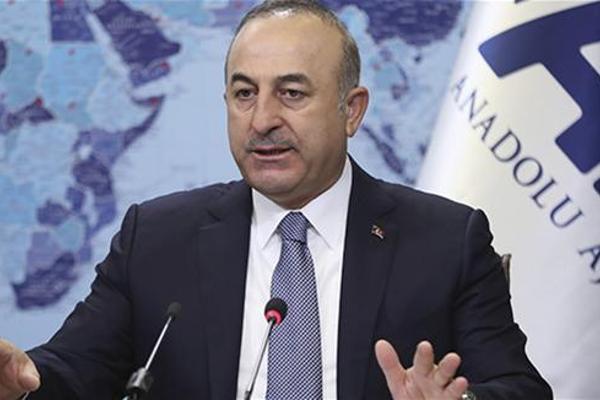Turkish FM says ceasefire violations put Syria talks in jeopardy
ANKARA


AA photo
Ceasefire violations by the Syrian government and Shiite militias are threatening to derail scheduled peace talks in Kazakhstan, Foreign Minister Mevlüt Çavuşoğlu stated on Jan. 4.“If we cannot stop the violations, the Astana process could fail,” Çavuşoğlu told state-run Anadolu Agency, blaming forces supporting the Syrian regime, particularly Lebanese Hezbollah, of violating the truce, which came into effect on Dec. 30.
He urged the sides to not seek opportunities, amid the ceasefire, to secure land, adding that Hezbollah was acting in such a manner, especially in East Ghouta.
He called on Iran to exert pressure on Shiite militias and the Syrian government to stop violating the fragile truce. Meanwhile, he added that the opposition had so far responded to the truce.
Monitoring centers activated
Çavuşoğlu said the two centers for monitoring the countrywide ceasefire in Syria have been established in Ankara and Moscow. The truce and humanitarian aid will be monitored continuously and impartially from these centers.
Meanwhile, he also stated that Turkey and Russia have been working on a document of punitive enforcement measures for those who violate the ceasefire deal.
Russian officials will visit Turkey on Jan. 9-10 to discuss the framework for Syrian peace talks planned to be held in Astana, he added.
The ceasefire was implemented in a bid to pave the way for peace talks that would finally aim to end the years of conflict within a year. Russia, Turkey and Iran had agreed to broker those talks.
Çavuşoğlu also said he had been assured by Russia that the Kurdish Syrian Democratic Union Party (PYD) would not be invited to Astana. Turkey sees the PYD as an extension of the outlawed Kurdistan Workers’ Party (PKK) and classifies it as a terror organization.
The PYD controls most of the Syrian-Turkish frontier. Its armed wing the People’s Protection Units (YPG) receives military support from the United States, which the U.S. sees as the most effective ground force battling ISIL.
